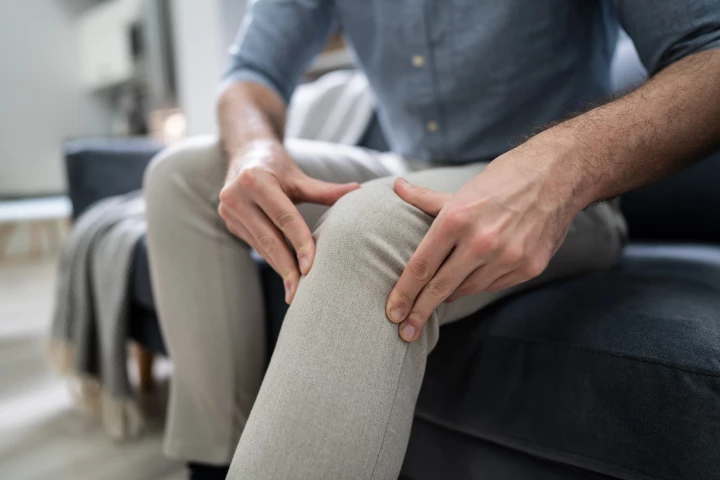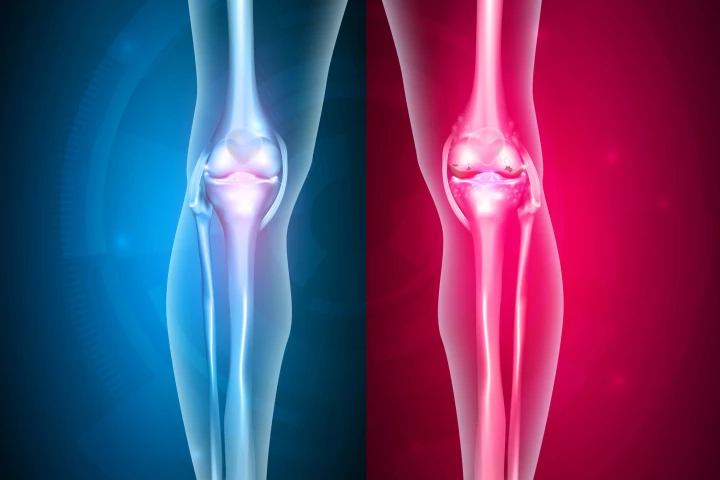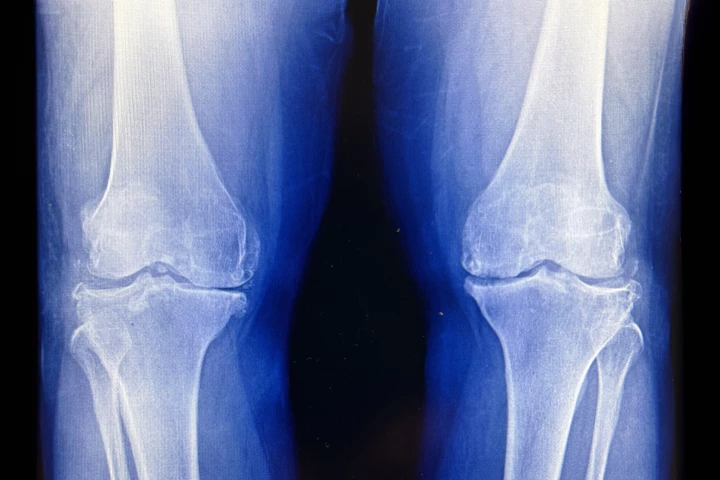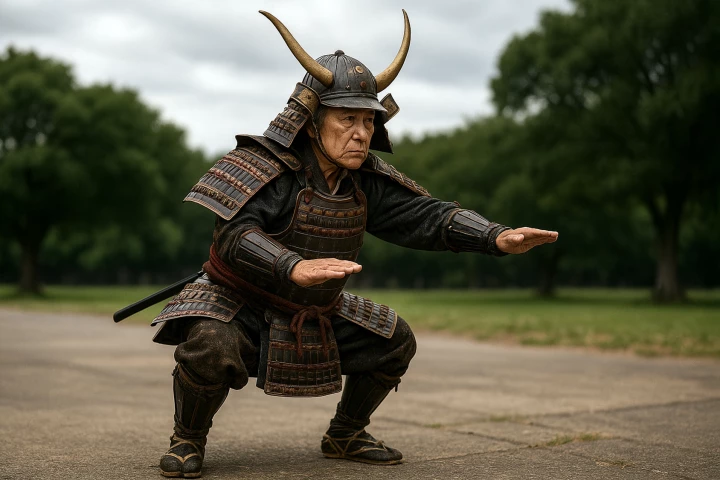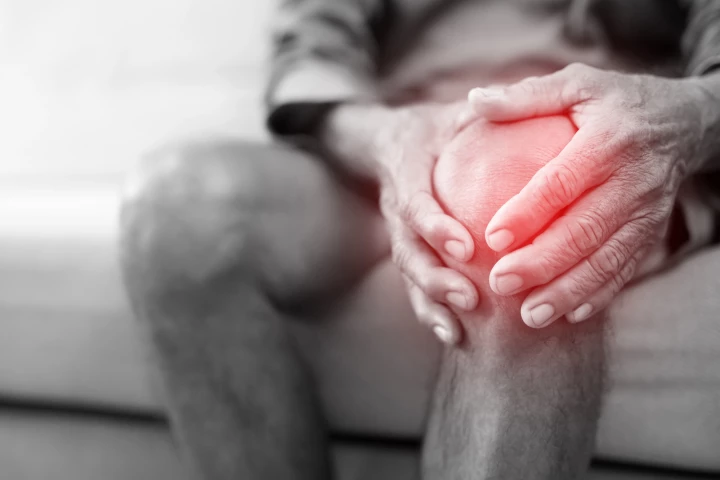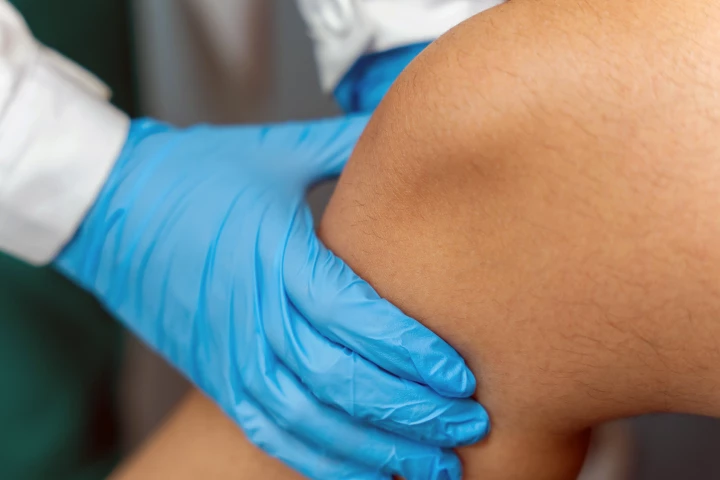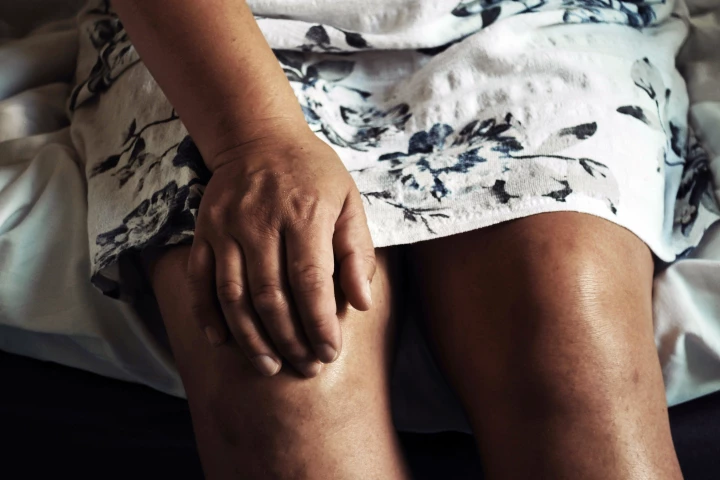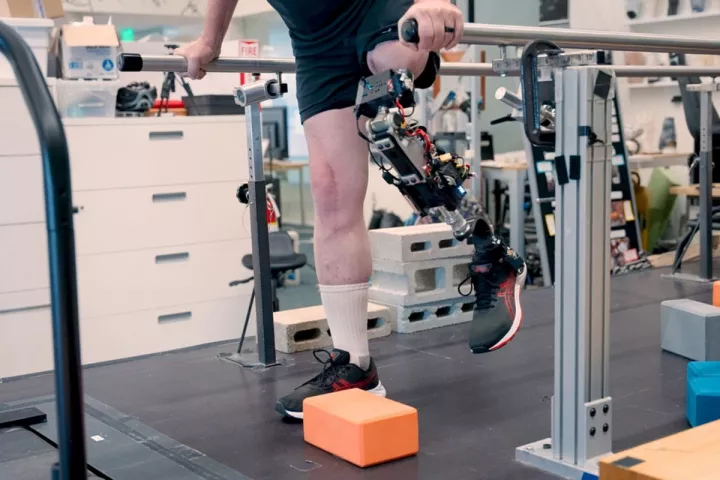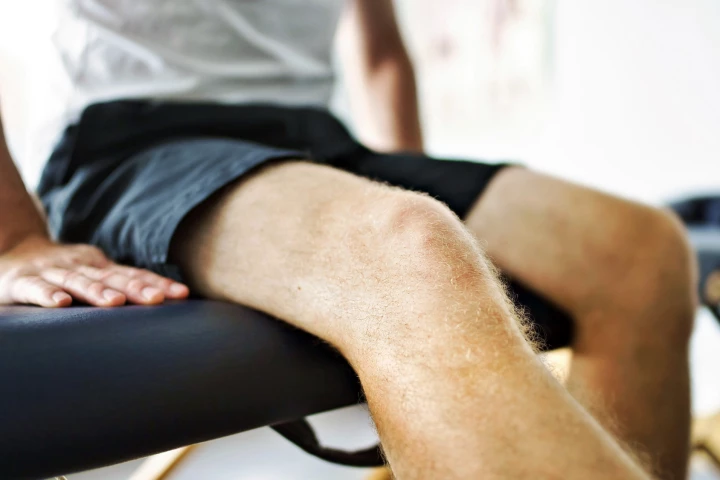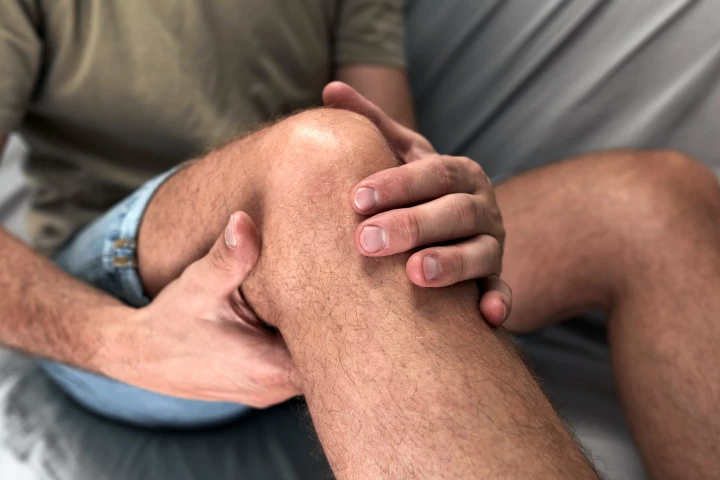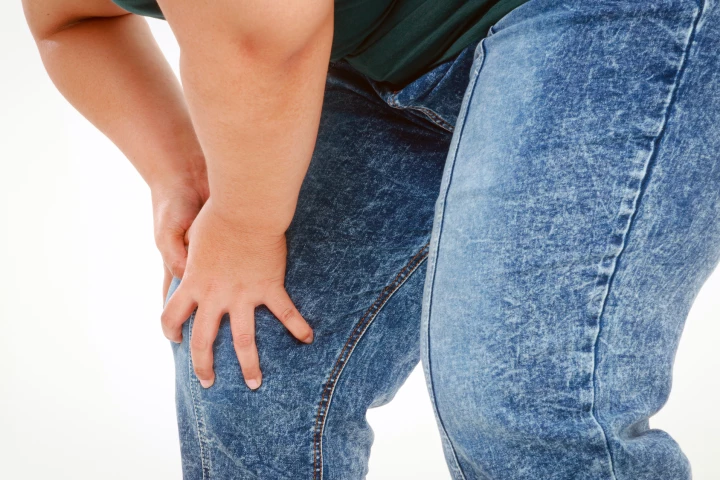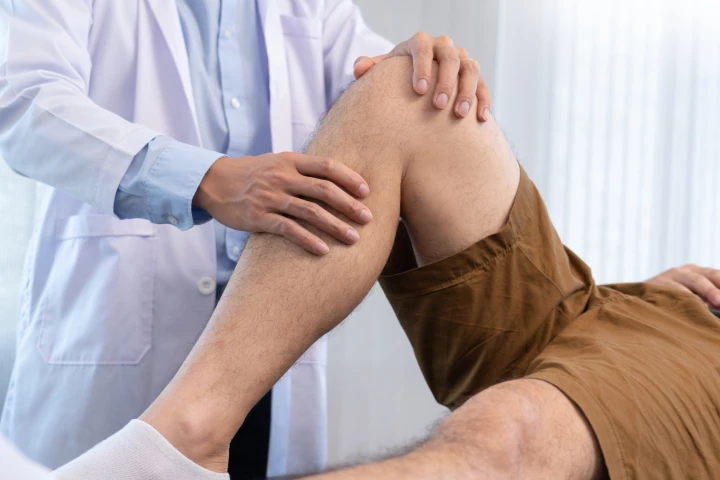Knee
Knee and things related to the knee joint
-
In a review of more than 200 clinical trials, scientists have identified which exercise offers the most benefits in relieving the symptoms of knee osteoarthritis. It's the most comprehensive look at physical activity in treating the condition yet.
-
Knee and other joint-replacement procedures can be a major improvement to a patient's quality of life – unless infection sets in. A new method of injecting implants with liquid metal aims to take this harmful side effect out of the equation.
-
In a clinical trial, six sessions of low-dose radiation significantly eased knee osteoarthritis pain and improved function for months afterwards, hinting at a safe, drug-free alternative for millions living with joint degeneration.
-
A centuries-old samurai etiquette practice may hold the key to stronger legs in just five minutes a day, with a new study finding that "Rei-ho" squats can boost knee strength by 26% and may help older adults stay independent.
-
A squishy cartilage-like material has been developed by researchers at the University of Cambridge. It can be loaded up with either long-term or short-term pain killers that are released when the material senses chemical stress from arthritis.
-
Noisy knees after an ACL injury may raise fears of impending arthritis, but new research shows that these noises signal existing damage and not future decline, helping patients and clinicians separate worry from real risk.
-
A subtle tweak in the way you walk – putting your toes in or out by a few degrees – could ease knee osteoarthritis pain and slow joint damage, according to new research that found personalized gait retraining can reduce strain on vulnerable cartilage.
-
MIT researchers have developed a method to restore natural movement in people with leg amputations above the knee. The team created a bionic knee that integrates with a patient's muscle and bone, enabling fluid motion and greater control.
-
Researchers have analyzed clinical trial data and ranked 12 different non-drug physical therapy treatments for knee osteoarthritis, based on their effectiveness in reducing pain and stiffness, and improving physical function.
-
A mainstay diabetes drug reduced pain and stiffness and improved function in overweight people with knee osteoarthritis, a new study has found. It may mean that, as a result, invasive knee replacement surgery can be delayed for as long as possible.
-
The ‘Ozempic drug,’ semaglutide, has been found to reduce moderately severe pain caused by knee osteoarthritis and improve physical functioning following weight loss, according to the results of a recent clinical trial by Novo Nordisk, the drug’s manufacturer.
-
Researchers may have identified the long-debated cause of creaking, popping and clicking knees – common at any age, with or without an underlying knee injury – and whether it's something to be concerned about.
